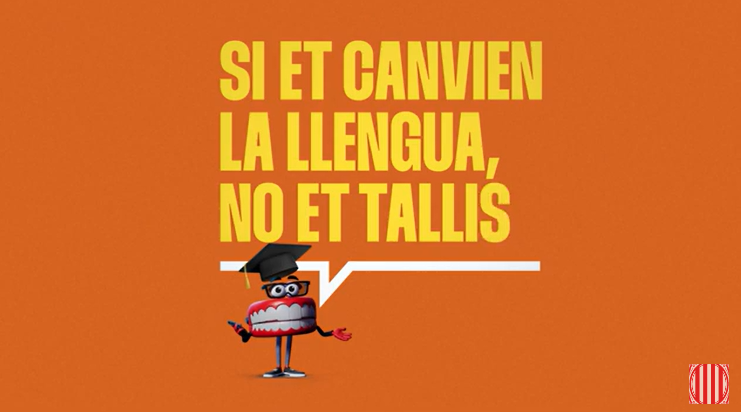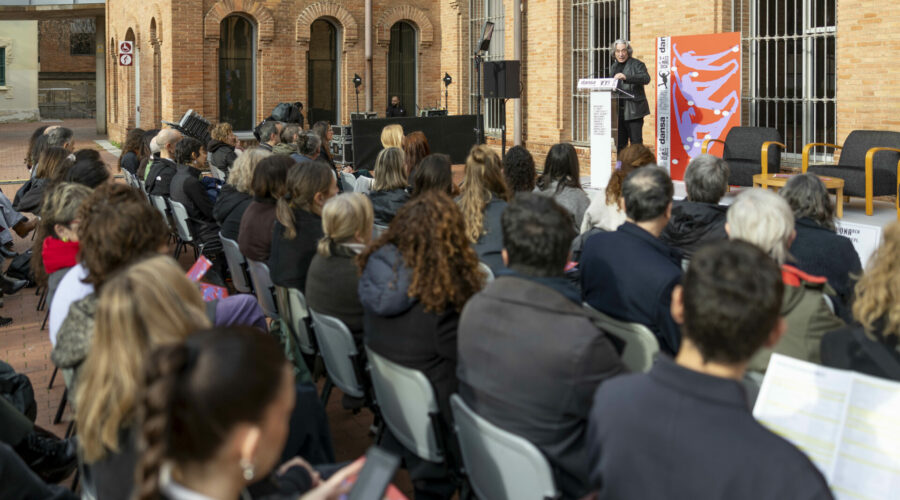The Catalan Government has once again launched its strategy to promote the use of Catalan in the education system, and this time, the objective is focused on universities: To teach 80% of university classes in Catalan by 2025.
Through the campaign“If they change your language, don’t cut yourself”, the government of Pere Aragonès and the Department of Research and Universities seek to ensure the linguistic rights of students and teachers, but with a clear bias towards Catalan. This initiative has generated a debate on linguistic diversity in higher education in Catalonia and its possible implications.
 The Plan for the Strengthening of the Catalan Language in Universities
The Plan for the Strengthening of the Catalan Language in Universities
The Catalan government has made it clear that its main objective is to strengthen the role of Catalan in the university system. While Catalan is already the vehicular language in university education in Catalonia, the campaign seeks to consolidate this position and progressively reduce the use of Spanish.
The text of the campaign states that once teaching begins in Catalan, it will not be allowed to change the language of instruction, even if a student requests it. This approach is based on transparency and language security, according to the document. This means that students must make informed decisions before enrolling in a university course, as the language in which it will be taught will be irremovable once the course begins.
Catalonia and Madrid have the 10 best universities in Spain
Linguistic Rights Mailboxes in Universities
To ensure compliance with this policy, language rights mailboxes have been established in many universities in Catalonia. These mailboxes allow anyone to file complaints about students or professors who defend their right to learn in Spanish. This move has raised concerns about possible censorship of dissenting voices and academic freedom in the university environment.
Catalonia loses 50% of students from other regions of Spain
An interesting phenomenon that coincides with this language policy is the significant decrease in the number of students from other regions of Spain who choose Catalonia as a university destination. The figures indicate that this decrease has been 50%. While the Generalitat has not provided a clear explanation, it has suggested that the causes are “multifactorial”. However, the coincidence of this decline with the implementation of the plan to Catalanize the university raises questions about whether this policy is negatively affecting the attractiveness of Catalonia as an educational destination.
The Goal of Teaching 80% of University Classes in Catalan by 2025
One of the most controversial points of this strategy is the goal of having 80% of classes taught in Catalan by 2025. To achieve this, the Generalitat intends to monitor teaching every six months and to establish complaint mechanisms for teachers who do not comply with the language regulations. This has raised additional concerns about pressure on teachers and their academic freedom.
Impact on Linguistic Diversity and Academic Freedom
This strategy of the Catalan Generalitat has generated an intense debate in Catalan society and beyond. On the one hand, some argue that strengthening Catalan as a language of instruction in universities is essential to preserve Catalan identity and culture. On the other hand, there are those who fear that this policy could have a negative impact on linguistic diversity and academic freedom at the university level.
The Catalan government’s strategy to promote the use of Catalan in universities has generated controversy and concerns about linguistic diversity and academic freedom. While the goal of preserving and promoting the Catalan language is understandable, it is important to find a balance that allows students and faculty to have choice and freedom in the use of languages in higher education.
The long-term impact of this strategy on the university community and on attracting students from other regions of Spain remains an open question that deserves continued analysis and debate.


 The Plan for the Strengthening of the Catalan Language in Universities
The Plan for the Strengthening of the Catalan Language in Universities
